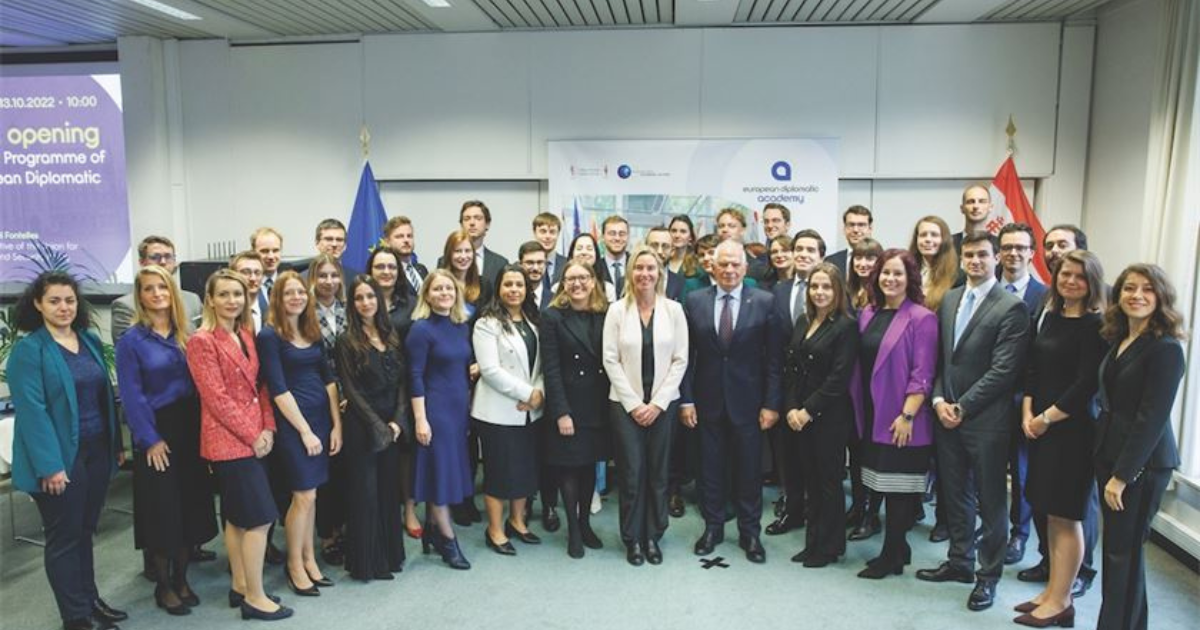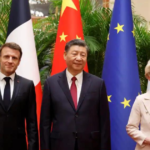Brussels is the hub of the European Union, and there are several buzzwords and acronyms that you are likely to hear and use regularly. The College of Europe and CAST are two of the most popular buzzwords. CAST, which stands for Contracts Agents Selection Tool, is the test that opens the gates for contract work at the European Union, while the College of Europe is the EU’s Hogwarts. The similarity between the mission of the College of Europe and that of the European Diplomatic Academy is striking. The academy is a new project recently launched by the European External Action Service (EEAS) to take Spaak’s and De Gasperi’s vision one step further and creating a “truly European diplomatic corps.”
The European Diplomatic Academy is designed to train diplomats who have served less than five years in their national systems on EU foreign and security policies. The academy is open to officials from EU institutions as well. The programme was initially authored and championed by MEP Nacho Sánchez Amor and submitted through the Committee on Foreign Affairs in April 2021, and it was ultimately granted €1m by the European Parliament in mid-November 2021. The College of Europe won the tender to run the project in June, and the Academy opened its doors on 29 August 2022.
The Academy’s aim is to establish a sense of solidarity and mutual understanding among western European states and to train people to uphold these values. It also aims to create a unique opportunity for young diplomats to see how their counterparts from other countries perceive them and their national interests.
The Revolutionary Nature of the Academy
The project is revolutionary in at least one aspect: the participation of diplomats from candidate countries. According to an EU spokesperson, the current geopolitical context has reminded the bloc of the importance of wider regional cooperation. “It is evident that global crises cannot be managed alone. [The Academy] has been an opportunity for candidate countries to have a sense of what being part of the EU family means, also in terms of a…”
Federica Mogherini, the former High Representative for Foreign Affairs of the European Union and the director of the European Diplomatic Academy (as well as the current rector of the College of Europe), believes that the Academy has the potential to create a network of contacts that will stay with the young diplomats throughout their careers. The fact that the Academy is a nine-month residential programme helps the participants to create strong bonds.
Mogherini also voices the intention to establish an alumni network similar to the College of Europe alumni community, which is well-represented in the EEAS and other EU institutions. The project could be the first step towards a common sense of belonging to the European Diplomatic Service, constituting an evolution-revolution.
The First Cohort
The first cohort of the project consists of 40 diplomats who are gathered around a table in the warmly lit dining hall, eating lunch together in between training sessions and talking about their experience in the pilot project. Some diplomats believe that the hasty implementation of the project is the reason France decided not to send any diplomats to Bruges. It also meant that little information was available beforehand, making the application a leap of faith for some (each ministry oversees its selection process).
The Academy offers a unique opportunity for the young diplomats to create strong bonds and see how their counterparts from other countries perceive them and their national interests. Malta hosts a similar academy for the Mediterranean region, the Mediterranean Academy of Diplomatic Studies (MEDAC), and Thomas from Malta believes that the experience will be intense enough to create lifelong relationships.
The European Diplomatic Academy is a new project recently launched by the European External Action Service (EEAS) to establish a truly European diplomatic corps. The project is revolutionary in at least one aspect: the participation of diplomats from candidate countries.





